Public Health Veterinarian: How to Pass the ACVPM Specialty Board Exam
Feral cats? No one ever mentioned anything about feral cats! And yet there it was, a whole series of questions focused on appropriate methods of feral cat population control. Did this really fall within the broad subject matter area of Public Health Administration & Education?
At that moment, as I read through the essay questions on the first morning of the board exam, it wasn’t up to me. All the hours of studying up on the differences in responsibilities between APHIS and FSIS, CDC and Border Control, went out the window as I imagined myself as a state public health veterinarian responding to a mayor’s request for help in putting together his feral cat program.
I guess I managed to play that role at some minimally acceptable level, because guess what? I passed the exam! I am now officially a Diplomate in the American College of Veterinary Preventive Medicine.
Studying for the Exam
I wrote another article a few months ago about the application process and my early preparations for the exam.
I had been participating in an Army-sponsored e-mail study group with weekly teleconference presentations for a couple of months, but when the end of April rolled around that was still the extent of my preparation. The group sends around links to news and journal articles about topics relevant to the exam, so I usually tried to skim through those along with my daily dose of ProMED e-mails.
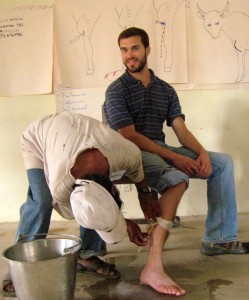
This group is open to anyone interested, so feel free to get in touch if you would like to get connected in coming years. We had a lot of civilians from all over the U.S. and even some international vets participating.
I finally realized in early May that I needed to kick it up a gear if I wanted to have a decent chance at passing. The first step was to fork over $180 for the exam prep course sponsored by Iowa State’s Center for Food Security and Public Health.
This immediately opened up an incredible collection of study resources. The course puts on a weekly teleconference presentation by subject matter experts, and the best part about this is that the presentations are recorded. These audio files from the past few years can be downloaded from the course website at any time. When combined with the accompanying PowerPoint presentations, this turned into my number one resource.
The course also has a number of relevant documents and other resources available for review, along with a relatively active discussion area in which other candidates and the course administrators answer questions and provide practice questions.
I ended up getting through about three years worth of the recorded presentations, along with a few of the key training modules from FSIS and APHIS that were highly recommended. I also read through all the discussions and went through all the compendia from the National Association of State Public Health Veterinarians.
So how much time did I actually devote to studying? From February through April, I probably put in about 4-6 hours total every week. Starting in early May, I began to devote more like 12-15 hours a week. And for the last two weeks before the exam, I spent about 40 hours a week studying. Disclaimer: everyone’s study habits and efficiency are different, so please don’t take my numbers as a guaranteed route to success!
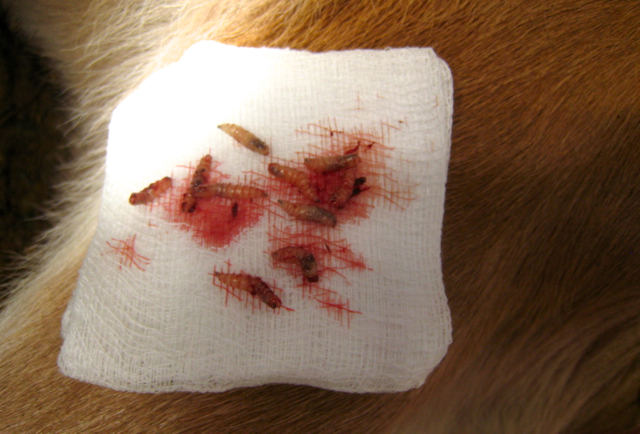
The Exam Itself
 I flew back from Sicily to the U.S. on the Thursday before the exam started. This served two purposes. First, it let me get adjusted to the time change so I could be in top form for two days of exam taking. Second, it enabled me to get to my 10 year college reunion! Becca and I drove from DC down to Charlottesville on Friday afternoon, two babies in tow, and had a great weekend catching up with old friends and classmates. It was actually her five year reunion at the same time, so that worked out perfectly.
I flew back from Sicily to the U.S. on the Thursday before the exam started. This served two purposes. First, it let me get adjusted to the time change so I could be in top form for two days of exam taking. Second, it enabled me to get to my 10 year college reunion! Becca and I drove from DC down to Charlottesville on Friday afternoon, two babies in tow, and had a great weekend catching up with old friends and classmates. It was actually her five year reunion at the same time, so that worked out perfectly.
The only thing that didn’t benefit from the weekend’s festivities was my exam preparation. Just imagine the competing demands of old friends, jet-lagged babies, and study time. Yikes. But it was worth it.
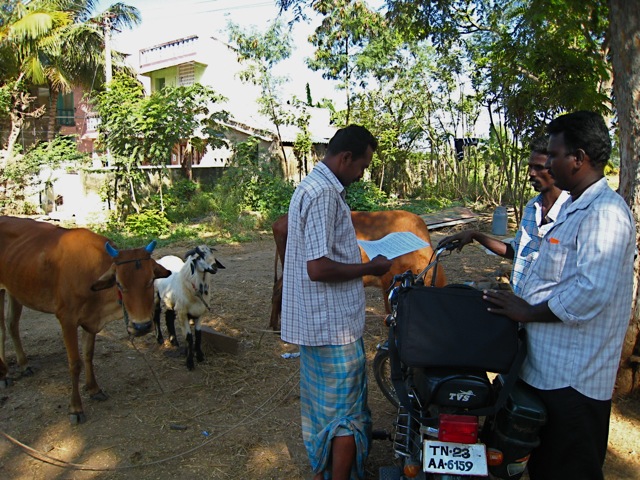
I flew out to Columbus, OH, on Monday morning to begin my 48 hour hotel room vigil before the exam started on Wednesday. This was really important for me to get the vital last-minute cramming in. My hotel was actually right across the street from a beautiful river park, however, so I did manage to escape for some enjoyment of the great outdoors. If you happened to see a strange guy walking along the river while reading from a big stack of printer paper and just barely avoiding the Canadian goose obstacle course, that was me.
On Wednesday morning, I caught the shuttle bus from the hotel directly to the exam location at the Ohio State College of Veterinary Medicine. It was fun to see a few fellow officers I knew from the Army, but we were all a little too focused on the task ahead to do too much socializing.
The first day consisted of six hours sitting at a computer to complete the Subject Matter Expertise Evaluation. This section includes a set of essay and short-answer questions from each of the five different subject areas. I thought it would be fun to pick a photo representing each of these subjects for this article. Those areas are:
- Environmental Health & Toxicology
- Infectious & Parasitic Diseases
- Food Safety
- Epidemiology and Biostatistics
- Public health Administration & Education
It was that last section that surprised me so much with its focus on feral cat control theories, but I generally felt pretty confident at the end of the day. I enjoy writing and fortunately didn’t get unlucky with a subject that I knew absolutely nothing about.
The second day is the Comprehensive Knowledge Examination, in which we were given six hours to complete 300 multiple choice questions, 60 from each of those five subject areas. This part of the exam is done the old-fashioned way: filling in endless little ovals with your #2 pencil. Even though I know that I’m a good multiple choice test taker, I finished the second day feeling pessimistic about my chances of passing.
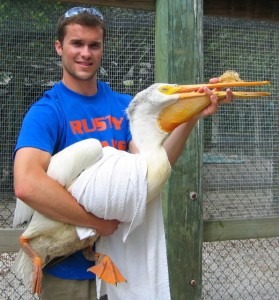
There were a LOT of questions from each section that I had to guess on, and I just didn’t know if I would quite make the cut. I overheard one candidate telling another that she had failed the exam twice before just on one multiple choice question, and I thought that this might be just my fate.
I would go into more specifics about the types of questions and subjects on the exam, but everyone is required to sign a pretty strict non-disclosure agreement at the end of the second day that prohibits this. The only reason that I can even mention the feral cat question is that the essay question topics are released every year to assist future candidates in their preparations.
The exam committee only tells passing candidates that they passed, but if you fail you get a breakdown of what went wrong in each section so you know what to focus on more for the next year.
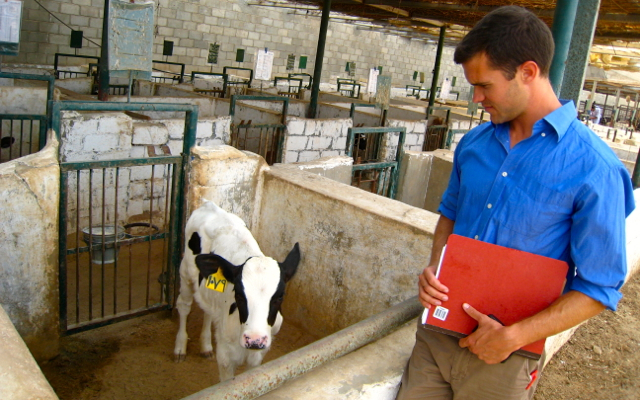
So Now What?
As I mentioned in my previous article, the big incentive for me to take this exam and become a boarded specialist is that the Army will pay me an extra $6000 a year for as long as I stay credentialed. Other U.S. government jobs have similar bonus pays for membership in a specialty board. For a relatively new grad like myself, the credential also makes me eligible for federal employment at a couple of GS steps higher than another veterinarian with similar levels of experience.
I know that the ACVPM board certification will also give me a step up in my competitiveness for all sorts of other academic and industry jobs. It’s not quite the same as a PhD, but pretty close.
I would love to help guide any of you who are considering stepping up to this challenge in the future.
Please ask any questions you have in the comment section below!


Comments
Congrats again! Sounds like a pretty tough exam.
Congrats! That is a great accomplishment! I am in vet school at Ross right now, and I have been considering Preventative Medicine for my career path. We get a lot of opportunities to work with some unusual diseases and species down here, which I have really enjoyed. I was wondering what you had to do to get on the path of preventative med? Did you have to do an internship or residency, or was it all through the Army? I have considered the Army (read your blog a lot for that), but it does not apply to schools outside the States, even if they are accredited. Thanks for the info, your blog has been really helpful for me! And congrats again!
Congratulations Elliott! What an accomplishment!
Thanks, Sarah!
Hey, Elliott! Such great news! I was in Liberia when your post came out. Could have put your new skills to work! While I was there, there was a rabies outbreak in Grand Gedeh. Fortunately, Veterinarians Without Borders had carried over 5000 doses of rabies prior to the trip I made. We ran several rabies clinics around Monrovia and Gbarnga. And, vaccine left over was donated to the Ministry of Agriculture and some was used for the rabies outbreak vaccine response.
I’m so happy for your new board certification. You are the poster child for highly achieving uncommon veterinarians everywhere! CONGRATULATIONS!
Great to hear from you Carrie! I’m glad you and the team were there with rabies vaccine in hand to help assist with the outbreak in Liberia. I would love to put my skills to work in that kind of setting!
Congratulations , and best wishes for the future ?
Elliot I am currently a MAJ in the US Army Reserves and I would like to take the ACVPM exam. I started my masters in public health online through University of Iowa but I’m finding it to time consuming. Would you be able to give me an more detailed outline on how you prepared for the board exam?
V/r
Kevin
Congratulations Elliot. I am planning to take the exam by 2017. I am sure I might need your help in preparing for that. Is there a way to keep in touch with you besides here?
Thanks
Murugan
Sure, please get in touch on my Contact page or through Facebook! Best of luck with the exam.
Your blog was really helpful to me as well. I’m also a VCO, and found out I passed the boards on Friday! Thank you for your insight into the exam. It helped me find the courage to take the exam!
Hi, Congrats on your achievement!!!!Could you please let me know of any study group for Veterinary Parasitology Please……..